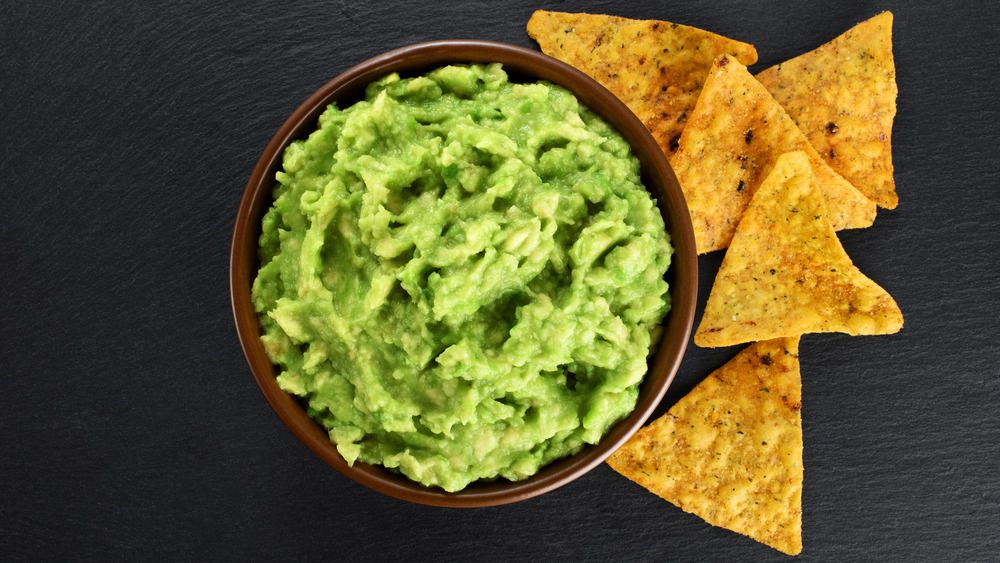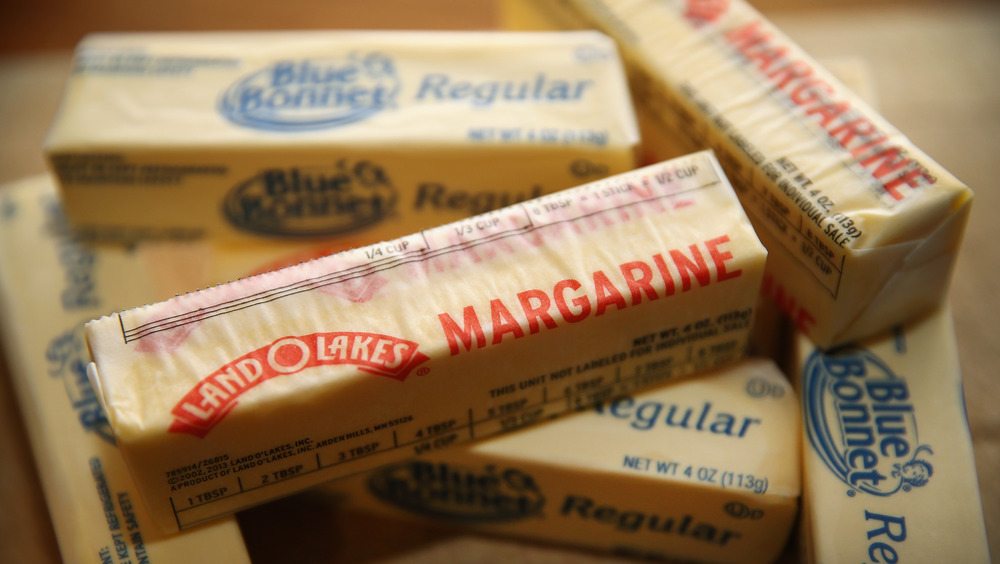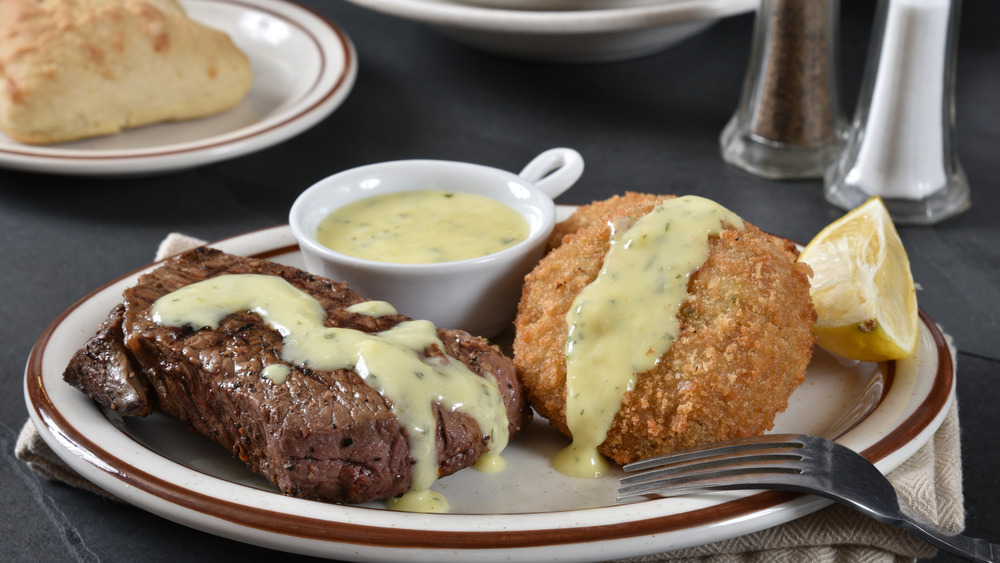When You Eat A Lot Of Fats Every Day, This Is What Happens To Your Body
Fat has long been one of the more controversial types of nutrients. Is it good for you? Diets ranging from the long-ago Atkins to the still trendy keto seem to advocate consuming loads of whipped cream, butter, cheese, etc., although of course these days those dairy products all have to be 100 percent natural, organic, grass-fed, and produced by cows who sign affidavits giving their informed consent to being milked. Still, it wasn't too long ago that low-fat diets were king, and we were told to avoid even formerly innocuous foods like peanut butter, almonds, egg yolks, and avocados as if they carried the dreaded fat plague and would instantly clog your arteries if you so much as looked at them.
In order to clear up some of the myths surrounding dietary fat, Mashed spoke with Alicia Galvin, RD, a resident dietitian for Sovereign Laboratories. She also works with the Dallas-based functional medicine clinic Carpathia Collaborative. Functional medicine, according to the website, is a holistic approach that tries to address health problems by promoting wellness throughout the body rather than just relying on drugs or surgery that address just one specific issue. Needless to say, proper nutrition is a vital part of such whole-body treatment, and Galvin broke down for us just how important dietary fat (both good and bad) plays in determining our health.
What are the different types of fats?
Galvin explains that there are four main types of fats: saturated, polyunsaturated, monounsaturated, and trans fats. She says the "good healthy fats" are those of the polyunsaturated and monounsaturated varieties and can be found in avocados, olives, nuts, seeds, salmon, and sardines. The bad fats are trans fats or oxidized fats (which she explains have been "exposed to excessive heat and broken down to free radicals," something that is "very damaging to the body's tissues"), which is the type of fat found in fried foods, processed baked goods, and desserts, as well as snack crackers and chips. Galvin calls these trans fats "the worst type of fat to consume" and advises that they "should be avoided completely."
Saturated fats, according to the American Heart Association, are the ones that come from most types of meat other than seafood and are also found in dairy products. When it comes to how healthy they are, saturated fats could be described as a chaotic neutral nutrient. For some of us, they are fine if consumed in moderation, but other people find that eating saturated fats can lead to high cholesterol levels. Galvin notes that "genetics can play a role as to what degree saturated fats affect you."
What can healthy fats do for your body?
Assuming that you are eating a diet high in the good types of fat, all kinds of wonderful things could be happening to your body. Galvin says that the best types of fat, which you can add to your diet as easily as switching to cooking with olive oil or adding a few servings of fatty fish to your weekly menu, offers a number of health benefits. "These foods with healthier fat profiles," she tells us, "can help to lower the risk of heart disease, stabilize blood sugar levels, [and] reduce inflammation." What's more, they may even be able to help prevent us from overeating, as these foods also "provide satiety," which is that comfortable feeling of a full (but not too full) belly.
How do unhealthy fats affect you?
If, on the other hand, your diet is high in all the wrong kinds of fats (hello, daily drive-thru habit!), then you may be letting yourself in for all kinds of trouble. We already know that greasy junk food can lead to weight gain, and it can also age skin, aggravate arthritis, and may even lead to depression. Galvin also notes that foods with high levels of trans fats "are known to significantly increase the risk of cardiovascular disease" and also that they "promote inflammation and can increase the risk of cancers."
Luckily, many food companies, even manufacturers of fast foods and other snack products, have cut way back on their use of trans-fats over the past few years, and as of 2018, a ban on the use of artificial trans fats (via The Washington Post) went into effect that eliminates much of this trouble-causing substance from our nation's food supply. While this doesn't mean that you now have the go-ahead to live off potato chips, ice cream, and Mickey D's fries, you'll at least be getting fat in a slightly healthier way.
How much fat should you allow in your diet?
While Galvin has a zero-tolerance policy regarding trans-fats (not to mention that, unless you're mainlining margarine, you've likely cut way back on your consumption of these without even knowing), she says "there is no reason to limit your healthy fat intake unless you have a medical reason to," citing as examples conditions that may require reduced-fat diets, gallbladder removal, or pancreatic disease. She says that, barring a doctor's advice to the contrary, "fats should be a regular part of the diet on a daily basis and included with every meal."
As to how much fat your meal should contain, Galvin recommends about two tablespoons of a heart-healthy oil or nut butter, half an avocado, 1/4 cup of seeds or nuts, or 1/2 cup of olives. She says these can serve as snacks as well as meals and should be consumed as often as possible because "fats play a critical role in helping with brain health, cholesterol synthesis which is needed for proper hormone levels, cell membrane integrity, and vitamin D synthesis" and also "help...to keep blood sugar balanced and appetite steady." If weight loss or maintenance is a concern, you'll still need to keep an eye on your calories intake there aren't too many high-fat, low-calorie foods (though eggs aren't too bad), but there's no need to count fat grams as long as most of your fat is the good kind.




